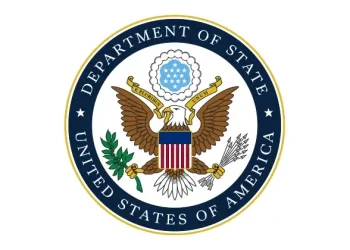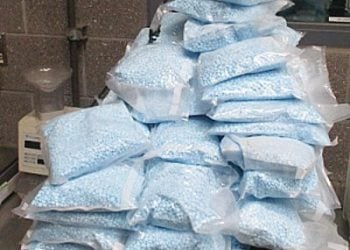The U.S. Department of the Treasury’s Office of Foreign Assets Control (OFAC) has sanctioned a network of cyber scam centers in Southeast Asia, responsible for stealing over $10 billion from Americans in 2024.
This marks a 66% increase from the previous year, highlighting the growing threat to U.S. financial systems and national security.
These scams, which involve forced labor, violence, and human trafficking, are primarily located in Shwe Kokko, Burma, and Cambodia. The sanctions target individuals, companies, and criminal organizations such as the Karen National Army (KNA), She Zhijiang, and Saw Chit Thu.
The Treasury utilized multiple Executive Orders to address transnational criminal organizations and cyber-enabled activities.
The KNA is an armed group in Burma that protects and profits from scam centers in Shwe Kokko. Under Secretary of the Treasury for Terrorism and Financial Intelligence John K. Hurley emphasized that these scams not only threaten Americans’ financial security but also subject thousands to modern slavery.
Regional Dynamics
The sanctions come amid rising cybercrime threats originating from Southeast Asia, particularly Burma and Cambodia.
Criminal networks exploit weak governance and conflict zones to facilitate transnational crime including cyber scams, drug trafficking, and human trafficking. These developments intersect with broader U.S. concerns about regional stability.
Sanctioned Entities
- Karen National Army (KNA) involved in facilitating scams.
- She Zhijiang’s Yatai New City compound targeted for scam operations.
- Cambodian businessmen Dong Lecheng and Xu Aimin linked to scam centers.
- Huione Group identified as a money laundering concern.
Protective Measures
- Blocking assets of designated entities disrupts illicit networks.
- Sanctions aim to protect U.S. financial systems from abuse.
- Supports FBI efforts against internet crime targeting Americans.
- Highlights U.S. commitment to combating modern slavery linked to cybercrime operations.
Treasury’s Strategic Actions
The Treasury’s actions build on previous measures taken against these networks. In May 2025, OFAC sanctioned Funnull for selling IP addresses used by cybercriminals for scam websites.
Additionally, Huione Group was identified as a primary money laundering concern under the USA PATRIOT Act due to its role in laundering proceeds from digital asset investment scams known as “pig butchering.”
Additional Reading
Final Thoughts
The sanctions imposed by OFAC underscore the United States’ commitment to combating cybercrime networks that exploit vulnerable regions like Southeast Asia while protecting American citizens from financial harm.
By targeting key figures and organizations involved in these illicit activities, the U.S aims to disrupt their operations significantly while advocating for human rights globally.
Sources:: U.S. Department of the Treasury, United Press International, and FinCEN Alert on Virtual Currency Investment Scams
.
Prepared by Ivan Alexander Golden, Founder of THX News™, an independent news organization delivering timely insights from global official sources.
Combines AI-analyzed research with human-edited accuracy and context.









